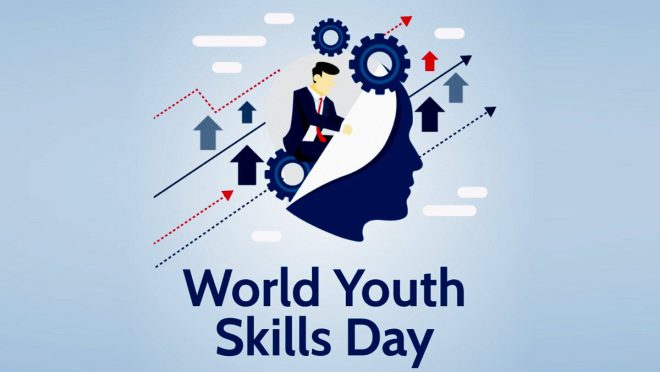World Youth Skills Day 2024: Technical, vocational training essential for world peace
World Youth Skills Day 2024: Technical, vocational training essential for world peace

Theoretical knowledge can only take you so far, as technical and vocational training play a crucial role in the broad arena of youth skill development which ultimately plays a very important role in world peace.
“Youth Skills for Peace and Development” which is the theme for this year’s World Youth Skills Day also highlights the crucial role that young people play in peacebuilding and conflict resolution efforts.
Education and training are central to the achievement of the 2030 Agenda (the 17 SDGs to be achieved by 2030) and the Incheon Declaration: Education 2030. The Incheon Declaration: Education 2030 was adopted by UNESCO together with UNICEF, the World Bank, UNFPA, UNDP, UN Women and UNHCR in 2015.
While the vision of Incheon Declaration: Education 2030 is fully captured by Sustainable Development Goal 4 “Ensure inclusive and equitable quality education and promote lifelong learning opportunities for all” it devotes considerable attention to technical and vocational skills development. It emphasises access to affordable quality Technical and Vocational Education and Training (TVET); the acquisition of technical and vocational skills for employment, decent work and entrepreneurship; the elimination of gender disparity and ensuring access for the vulnerable.
The TVET skills include: 1. Interpersonal skills, 2. Knowledge of technology, 3. ICT Skills, 4. Communication and Management Skills, 5. Problem solving and 6. Critical Thinking.
TVET can equip youths with the skills required to access the world of work, including skills for self-employment. TVET can also improve responsiveness to changing skill-demands by companies and communities, increase productivity and increase wage levels.
Technical and vocational training can reduce access barriers to the world of work, for example through work-based learning, and ensuring that skills gained are recognised and certified. TVET can also offer skills development opportunities for low-skilled people who are under- or unemployed, out of school youth and individuals not in education, employment and training (NEETs).
The world faces a multitude of challenges today, many of which affect the youth. Violent conflicts disrupting education and stability, a polarized online environment fostering negativity, and persistent economic inequality limits opportunities.
These issues threaten not only individual futures but also the overall stability of societies. It is crucial to equip youths with the necessary skills for fostering a culture of peace, nurturing responsible global citizens, and promoting sustainable development to build a more just, inclusive, and sustainable future for all.
This is where World Youth Skills Day comes in, events on this day have provided a unique opportunity for dialogue between young people, technical and vocational education and training (TVET) institutions, firms, employers’ and workers’ organisations, policy makers and development partners. Participants have highlighted the ever-increasing significance of skills as the world is embarking on a transition towards a sustainable model of development.
World Youth Skills Day is celebrated on 15 July every year since the United Nations General Assembly introduced it in 2014 to celebrate the strategic importance of equipping young people with skills for employment, decent work and entrepreneurship, as well as for addressing global challenges and advancing sustainable development.
Humanity’s future depends on the boundless energy, ideas and contributions of young people which would help shape a better, more sustainable future for us all.


